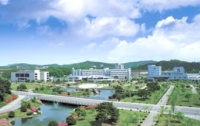Major university initiatives in nuclear energy have been launched in the Far East, while the international nuclear organisation for young people has announced its next meeting.
 |
| The KAIST campus, where nuclear safety courses will start this year |
KINS said, "the main purpose of the masters degree program is to raise nuclear safety leaders through training and education of students from foreign countries, particularly members of the Asian Nuclear Safety Network." That network includes Bangladesh, China, Indonesia, Japan, Malaysia, the Philippines, Pakistan, Singapore, South Korea, Thailand and Vietnam as well as Australia, France, Germany, the USA and the International Atomic Energy Agency in supporting roles. The program starts in September this year and some students will receive scholarships, including tuition, stipend and air tickets KINS said.
In neighbouring Japan, Musashi Institute of Technology has decided to open a graduate school focused only on nuclear power, citing rapid development of interest in the subject. It will be operated in partnership with Waseda University, which approached Musashi with the idea last year. The development was covered in Japanese newspaper Mainichi Daily.
Musashi formerly ran nuclear power courses, which benefited from its 100 kW Triga research reactor. Although this unit is now shut down, students will still be able to use its facilities for some practical training.
Meanwhile, the University of Fukui is to start an international laboratory for the study of nuclear power engineering, according to the Mainichi report.
The new schools will follow two other Japanese establishments, the University of Tokyo and Fukui University of Technology, in bringing back nuclear power as a specialisation.
An industry effort to form networks of young people working in the nuclear power sector and develop their potential is the International Youth Nuclear Congress. One of its goals is to "transfer knowledge from the current generation of leading scientists to the next and across international boundaries."
A major component of this is IYNC's annual meeting, the fifth of which is scheduled for Cape Town, South Africa in July 2010. A ten-track technical program will cover a range of practical topics in nuclear power generation.






_15863.jpg)







